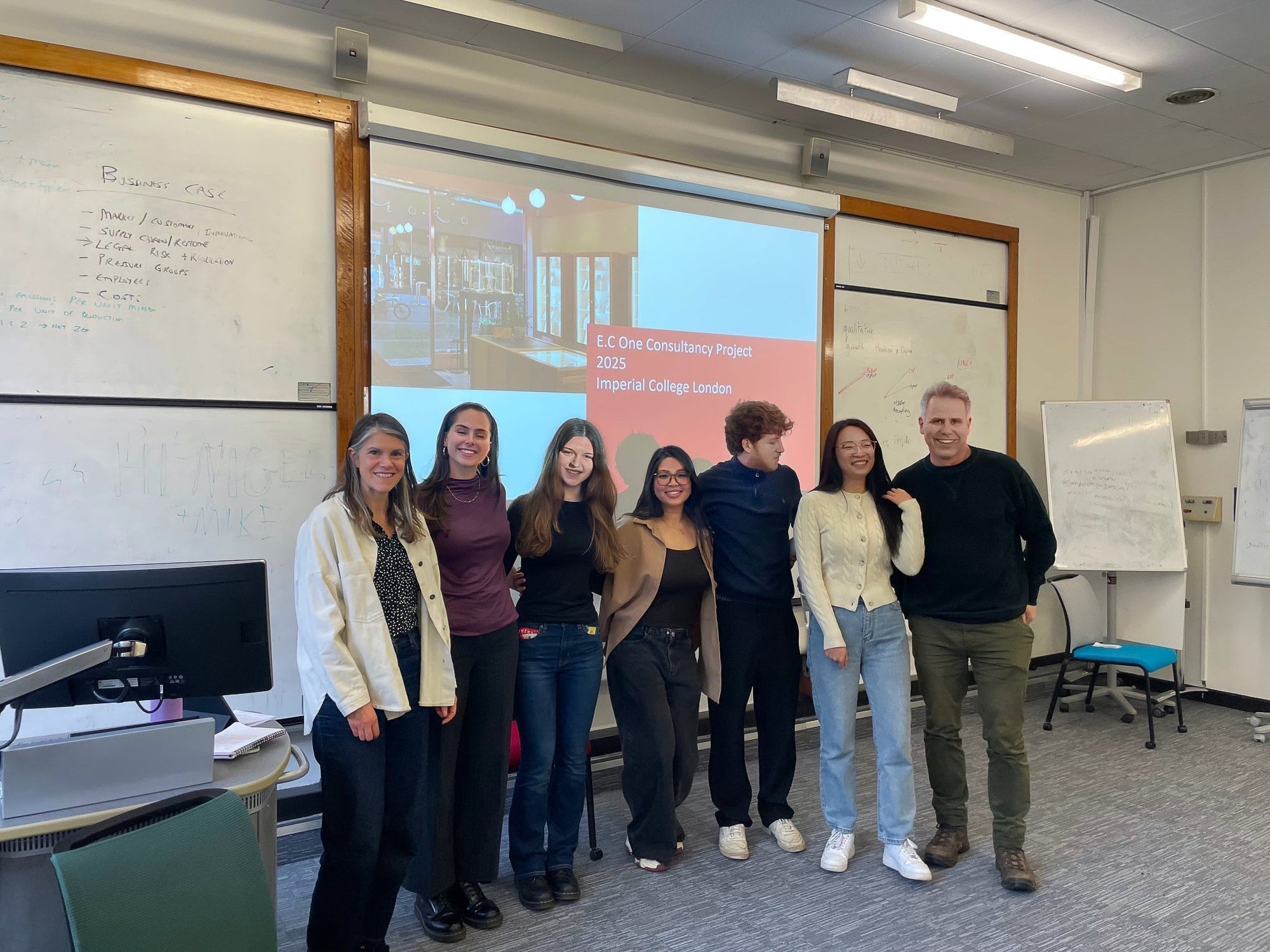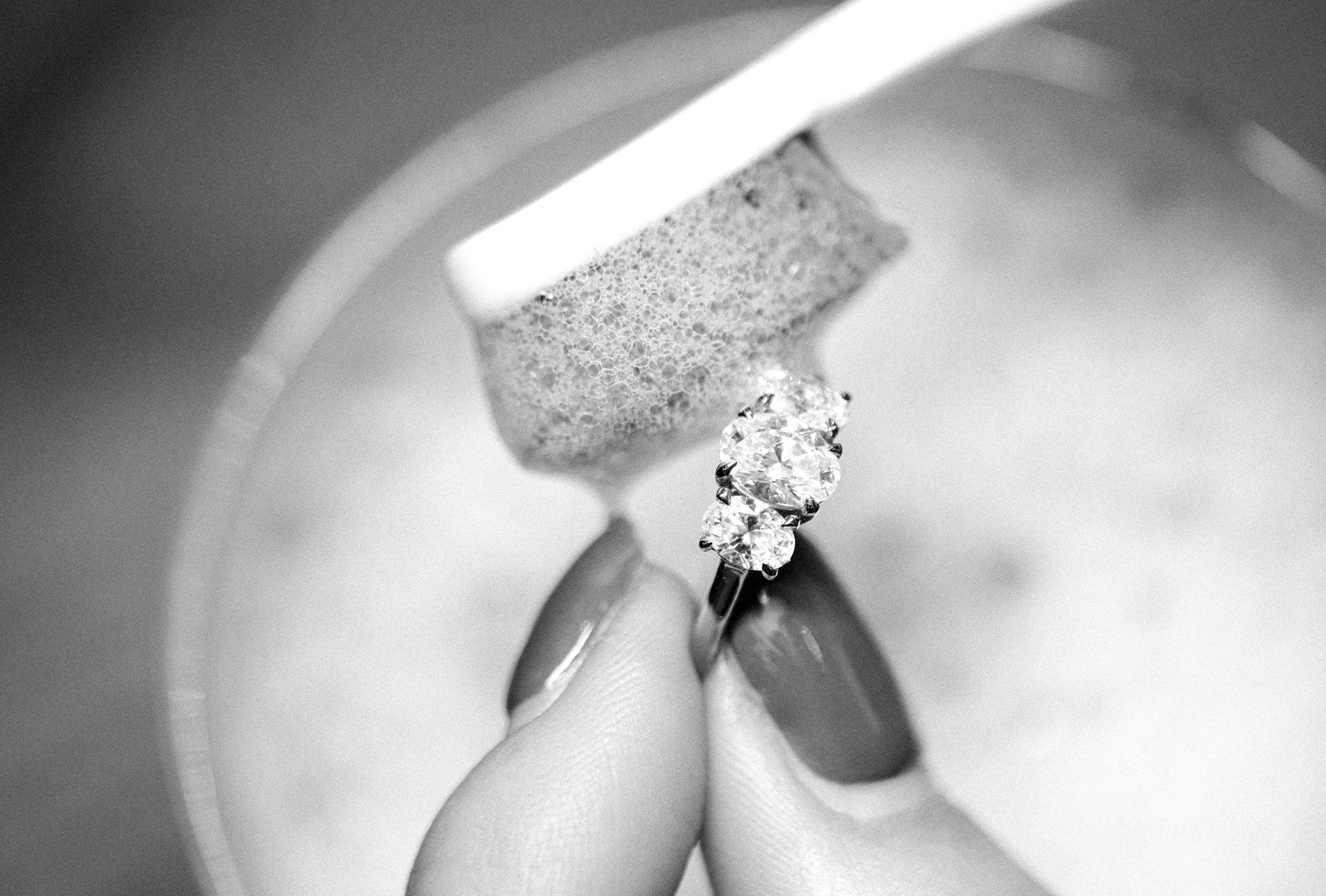We're incredibly proud to have been featured in this month's Retail Jeweller magazine. The article, written by Ruth Faulkner, highlights our recent collaboration with Imperial College London on a groundbreaking project focused on recycled gold. It captures the essence of our work and the exciting strides we're making in sustainable practices.
Leading independent jeweller EC One has collaborated with students from Imperial College London to conduct an in-depth, unbiased analysis of the social and environmental implications of using recycled gold in jewellery production.
This six-week consultancy project provided valuable insights to enhance EC One's sustainable sourcing strategies and further solidify its commitment to ethical practices.
As a leader in ESG practices, EC One is dedicated to understanding the broader impact of using recycled gold.
While it is commonly reported that recycled gold has a carbon footprint 99.8% lower than mined gold, EC One aimed to critically examine this claim and explore wider sustainability impacts.
The goal was to ensure its sourcing strategies reflect a transparent, evidence-based approach to sustainability.
Building upon previous research conducted by Imperial College students in 2024, this project focused on assessing the recycled gold value chain.
It examined the environmental and social impacts of using recycled gold, providing EC One with actionable insights to refine its sustainability practices.
Key Findings:
1. Environmental Impact: The project analysed the claim that recycled gold's carbon footprint is 99.8% lower than mined gold. A comprehensive literature review of peer-reviewed journals from 2020 to 2025 was conducted, focusing on the carbon intensity of High-Grade Scrap Gold (HSG).
The findings suggested that while recycled gold significantly reduces emissions, the 99.8% reduction claim is not universally applicable. EC One has since refined its communications to state that its recycled gold achieves at least a 95% reduction in carbon emissions compared to large-scale mined gold.
2. Social and Environmental Implications: The students conducted a detailed supply chain analysis to compare the impacts of recycled gold and large-scale mined gold. This involved assessing upstream processes from gold sourcing to goldsmithing. EC One’s transparent evaluation of these impacts enables the company to make informed decisions and enhance its responsible sourcing strategies.
EC One said it remains committed to leading the jewellery industry in responsible sourcing.
The insights from this partnership will strengthen its evidence-based sourcing strategy, ensuring its sustainability efforts are credible and impactful.
Additionally, the findings will support the brand’s advocacy for transparency and positive change within the broader jewellery supply chain.
Commenting on the study, Jos Skeates, founder of EC One said: “Dismissing recycled gold as 'greenwashing' allows for the continued use of freshly mined gold, ignoring its environmental impact.“
While initiatives like SMO, Fairtrade, and Fairmined support miners and deserve recognition, they still carry significant ecological costs.
“From an environmental viewpoint it is undeniable that the best source of gold is the gold we already have. We should seek solutions that don’t force a choice between supporting people or protecting the planet—sustainability should encompass both.”



